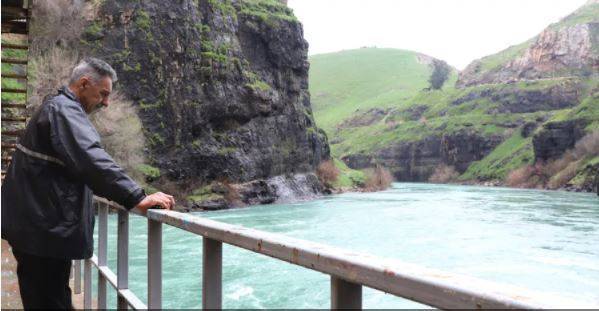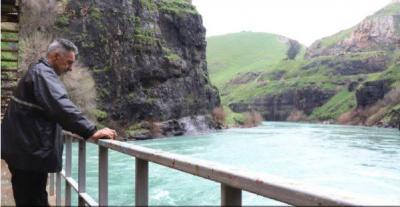In an effort to confront the drought crisis affecting Iraq, the central government in Baghdad announced the release of water from dams to irrigate agricultural lands and meet other needs, amid warnings that the current situation may be the most critical for Iraq in terms of water resources. Over the past months, Iran has cut off most of the river waters flowing from its territory into Iraq, resulting in severe drought in many areas of the eastern part of the country. This decision by Tehran comes despite the fact that approximately 40 rivers flowing from Iran into Iraq are international transboundary rivers, governed by international agreements regulating the rights of countries sharing those rivers.
Moreover, the water flow from the Tigris and Euphrates rivers, along with hundreds of their tributaries from Turkey, has decreased over the past few months, raising alarms about the risks facing agriculture and drinking water needs.
### A Scarce Year
In the latest developments regarding this issue, Ali Radi, spokesperson for the Iraqi Ministry of Water Resources, stated: "The data indicates that this year is scarce, and all water revenues reaching our dams and reservoirs are insufficient to cover our needs, thus we are forced to release the available reserves in our dams and reservoirs to meet the needs according to this plan." The Iraqi official added, as reported by the official news agency "Waa," that "the ministry will adhere to water releases to cover needs according to the agricultural plan, in addition to water releases to secure other needs, including drinking water stations, marshlands, and the saline tongue of Basra, as well as for health and hydropower uses."
He noted that "preventing the infringement on water allocations is to ensure water reaches all beneficiaries and all provinces, especially Basra, Maysan, and Dhi Qar, which are most severely affected due to violations of water allocations, along with preventing environmental violations concerning water quality from the disposal of waste and outputs from sewage treatment plants that lead to water pollution."
Official figures indicate that desertification has engulfed 39% of Iraqi lands, while increasing soil salinity threatens the agricultural sector in 54% of cultivated lands. Environmental experts highlight that the worsening crisis is exacerbated by unjust water policies stemming from neighboring countries, which have built dams on the origins and tributaries of both the Tigris and Euphrates rivers, thus reducing water flow into Iraqi territories, leading to significant shortages in irrigation water.
Additionally, the 2020-2021 rainy season in Iraq was the driest in the past 40 years, causing a sharp decrease in water flow in the Tigris and Euphrates rivers by 29% and 73%, respectively.
### Diplomatic Efforts
Recently, the Iraqi government has initiated extensive diplomatic efforts with Ankara and Tehran to resolve the water crisis, reaching an agreement to implement the memorandum of understanding signed in 2009, which includes provisions for a fair share of water for Iraq. Iraq also participated in a recent water conference held in Cairo, resulting in commitments from Turkey, as well as readiness to establish similar agreements with Iranian water resource officials.
In this context, an Iraqi official from the Ministry of Water Resources confirmed that "there has been good progress in resolving the water crisis, following commitments received from Turkey and Iran, although the phenomenon of drought in general has also cast its shadow over the situations in these two countries." The official, who preferred to remain anonymous for "Sky News Arabia," stated that "the release of water from dams to supply water facilities and the agricultural plan came as a temporary solution until the implementation of agreements reached by Iraq with these two countries recently, which could help alleviate part of the water crisis."
The repeated drought seasons have led to a reduction in arable land for agricultural investment in Iraq due to increasing salinity, posing a significant threat to food security. Warnings have escalated about the upcoming phase amid the terrifying decrease in water, which could place Iraq in a critical situation.




